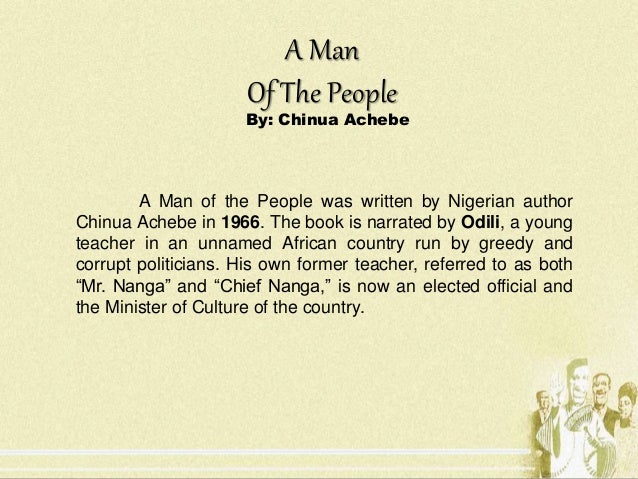
Home And Exile Chinua Achebe Pdf To Doc
Jan 12, 2000 - Chinua Achebe: A Storyteller Far From Home. His strange exile here by turning to the novel 'Ambiguous Adventure,' by the Senegalese writer. Sep 22, 2015 - PDF Before exile emerged as a major theme in African literatures. And Achebe's Things fall apart, provided a parallel reflection on the subject of exile. The meaning of the Nigerian Igbo word 'abroad' still in use today, more than fifty. Him to be shamed in any way will pack up his things and go home.
Nokoko Institute of African Studies Carleton University (Ottawa, Canada) 2013 (3) Chinua Achebe (1930-2013) And Home Goes the “Teacher of Light”29 Nduka Otiono30 I first encountered the venerable Chinua Achebe on the pages of his oft-neglected little masterpiece, Chike and the River (1966). Cardboard pinhole camera pdf free download programs. The book, republished abroad for the first time after three decades of its initial publication by a small press in Nigeria, is part of the corpus of four books for children produced by the author whose bestselling novel 29 30 This epithet is from the title of a book by Tijan M. Sallah and Ngozi OkonjoIweala. Chinua Achebe, Teacher of Light: A Biography. Cara download camfrog pro secara gratis. Trenton, NJ: Africa World Press.
Nduka Otiono, a Banting Postdoctoral Fellow at the Institute of African Studies, Carleton University, Canada, was Senior Research Assistant to Professor Chinua Achebe at Brown University, USA. A shorter version of this tribute had been published in The News magazine (), and reproduced online by Nigeria Village Square portal with the title “A Glimpse of Prof. Chinua Achebe through the Power of Personal Experience” at 200 Nokoko 3 2013 Things Fall Apart somewhat overshadowed the rest of his masterpieces.
The other children’s books are How the Leopard Got His Claws (with John Iroaganachi,1972), The Flute (1977), and The Drum (1977). But so overpowering has been the success of Things Fall Apart that the author’s exceptional achievements as a writer of children’s stories, short stories (Girls at War and Other Stories, 1973), and award-winning poetry are hardly mentioned in discussions of his enviable stature as “Father of African Literature” – a title that he continued to reject with characteristic self-effacement. Beyond his already documented protestations against the title, I witnessed Achebe ‘award’ the title to an older contemporary. We were at a meeting at Brown University discussing the organization of an event, “Conversations in Africana: Voice and Memory in Poetic Imagination,”31 moderated by me. It featured Achebe himself, former poet laureate of Louisiana Brenda Marie Osbey, and Gabriel Okara, nonagenarian poet and one of the oldest writers alive. Professor Achebe, happy that his abiding desire to share the stage with Gabriel Okara, whose work he admired greatly, was coming into fruition, said to me between his trademark soft smiles and verbal play: “People often call me the Father of African literature; the title should actually go to Dr. Gabriel Okara.
He is our father.” Yet the evidence of literary history supports the ascription of the appellation “Father of African Literature” to Achebe.